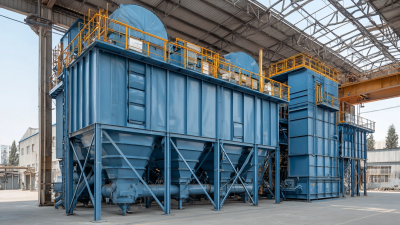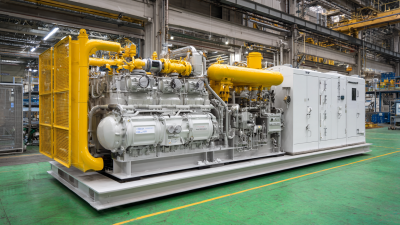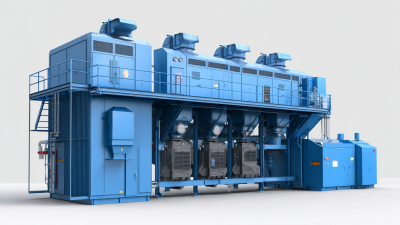How to Choose the Right Airhorse Compressor Lubricant for Optimal Performance and Longevity
Table of Contents
- Understanding Airhorse Compressors and Their Lubrication Needs
- Types of Lubricants for Airhorse Compressors: Which One to Choose?
- Key Factors to Consider When Selecting Compressor Lubricants
- How to Identify Quality Performance in Lubricants for Longevity
- Common Mistakes to Avoid When Choosing Compressor Lubricants
- Tips for Maintaining Optimal Lubricant Levels in Airhorse Compressors
- Maximizing Compressor Efficiency: The Essential Role of ACPL-412 Compressor Lubricant
- FAQS
- Conclusion
- Related Posts
Picking the right Airhorse Compressor Lubricant is pretty important if you want your gear to run smoothly and last longer. Here at Shanghai Jiongcheng Industrial Co., Ltd., we totally get that choosing a lubricant isn’t just about color or price — it’s about finding the one that really matches your compressor’s needs and boosts its performance. We offer a wide range of products, from advanced compressor lubricants to vacuum pump oils and refrigerated compressor lubricants—all designed to handle high temperatures.

Thanks to state-of-the-art technology and expert formulations created in top-notch labs, we’re confident our lubricants deliver superior results. When you’re making your choice, just keep in mind things like viscosity, thermal stability, and whether it’s compatible with your equipment. That way, you can make a smart decision that protects your investment and helps your Airhorse Compressor stay in great shape for the long haul.
Understanding Airhorse Compressors and Their Lubrication Needs
Airhorse compressors are pretty vital for all kinds of industrial and commercial jobs. If you really want them to run smoothly and last longer, understanding their lubrication needs is key. Using the right oil helps keep those moving parts working effortlessly, cutting down on friction and wear. Plus, it helps to dissipate the heat that builds up when the compressor's running and also protects against rust and corrosion on the inside.
When you're picking out a lubricant for your Airhorse compressor, think about the environment it’ll be working in and how the temperature varies. Honestly, synthetic oils often give you better protection and efficiency—especially if stuff gets really hot or cold. It’s also a good idea to keep an eye on the oil level and quality regularly—that way, you’ll catch any issues before they turn into big problems.
**Quick tip:** Always check the manufacturer’s recommendations for what kind of lubricant to use. Using the wrong one can cause your compressor to wear out faster or even break down. And try to make lubrication checks part of your regular maintenance routine—trust me, it pays off in the long run for keeping your compressor reliable and running smoothly.
Types of Lubricants for Airhorse Compressors: Which One to Choose?
When it comes to keeping your Airhorse compressors running smoothly and lasting longer, choosing the right lubricant is a pretty big deal. There are a bunch of options out there—like mineral oils, synthetic oils, and semi-synthetic blends—and each has its own pros and cons. Interestingly, according to the folks at the National Institute of Standards and Technology, compressors using synthetic lubricants can be up to 30% more energy-efficient than those sticking with traditional mineral oils. That’s mainly because synthetic oils are formulated to handle heat way better and don’t evaporate as easily.
Now, mineral oils are usually the go-to because they’re cheaper, no doubt. But here's the catch—they tend to wear out faster and don’t perform so well under high temps. On the flip side, synthetic oils, even though they cost more upfront, give better protection and can go longer between oil changes. That means less maintenance hassle and probably some savings in the long run. The American Society of Mechanical Engineers also says that using top-tier lubricants can extend your compressor's life by up to 50%, which is pretty impressive when you think about avoiding repairs or replacements. So, when you're picking a lubricant, make sure to think about what your compressor needs day-to-day and what will save you money over time—that’s the smart move.
Key Factors to Consider When Selecting Compressor Lubricants
Picking the right lubricant for your air compressor might not sound like a big deal, but trust me, it really is key to keeping things running smooth and your equipment lasting longer. There are a few important things to think about when you're choosing one. For starters, the type of compressor matters—a lot. Whether you’ve got a rotary, centrifugal, or reciprocating compressor, each usually needs a specific kind of lubricant to cut down on wear and keep everything running efficiently. Then there's the way your compressor operates — that can influence whether you should go with synthetic oils or stick with mineral-based ones, and that choice really impacts how well things work overall.

Another thing to consider is how the compressor’s lubricated—are you dealing with oil-lubricated systems or oil-free ones? Oil-lubricated compressors generally need good quality oils that can handle higher temps and pressures, protecting against friction and wear. On the flip side, oil-free systems often require special lubricants designed to keep things running without introducing dirt or contaminants. Oh, and you shouldn’t forget about where and how you're using the compressor! If it’s for manufacturing or some heavy-duty industrial work, that should definitely influence your lubricant choice, making sure it meets all the safety and operational standards.
All in all, taking these factors into account means your compressor will work better and last way longer. It’s not just about filling it up with oil — it’s about choosing the right one for your specific setup and needs.
How to Identify Quality Performance in Lubricants for Longevity
When you're picking the right lubricant for your airhorse compressor, it’s really important to focus on quality. Using a top-notch lubricant is key to keeping everything running smoothly and making sure your equipment lasts as long as possible. Honestly, good lubricants help reduce friction and wear — stuff that can really mess with efficiency and durability. I read somewhere recently that high-performance oils can actually extend machinery life by up to 30%! That just shows how crucial they are in any maintenance game.
Plus, with all the new tech in lubrication — especially coming from big fields like aerospace and marine industries — there are formulations out there meant for the harshest conditions. Like, these lubricants are designed to handle extreme temperatures and pressures. Think about drilling rigs or super-fast trains — they need to perform under so much stress, and these advanced lubricants help keep them running smoothly.
From what I’ve seen in the industry updates, it’s also super important to look at how well a lubricant tests against international standards. When choosing one for your airhorse compressor, you should check out things like how stable the viscosity stays, whether it can withstand high temperatures, and how resistant it is to oxidation. All these little factors add up — they really make a difference when it comes to getting the best performance and a longer life out of your equipment.
How to Choose the Right Airhorse Compressor Lubricant for Optimal Performance and Longevity
| Lubricant Type | Viscosity Grade | Additives | Temperature Range (°C) | Performance Rating |
|---|---|---|---|---|
| Synthetic Oil | ISO 32 | Anti-wear, Oxidation Inhibitors | -20 to 100 | Excellent |
| Mineral Oil | ISO 46 | Detergents, Rust Inhibitors | -5 to 90 | Good |
| Bio-based Oil | ISO 32 | Biodegradable Additives | -15 to 85 | Very Good |
| Esters | ISO 68 | Extreme Pressure Additives | -30 to 120 | Superior |
Common Mistakes to Avoid When Choosing Compressor Lubricants
When it comes to choosing the right lubricant for your airhorse compressor, avoiding some common pitfalls is pretty important if you want it to run smoothly and last longer. A lot of folks make the mistake of just grabbing the cheapest option without really checking if it matches what the equipment needs — and honestly, that can be a recipe for trouble. The International Compressor Engineering Society points out that using the wrong lubricant can cut down efficiency by 20 to 30 percent, which ends up costing you more over time. So, making sure the lubricant meets the manufacturer's specs can save you from unnecessary wear and tear.
And don’t forget about the environment your compressor is working in. If you're using it in varying temperatures or high humidity, picking a lubricant that isn’t up to the task can cause things to break down faster than they should. A study from the American Society of Mechanical Engineers even shows that using the right lubricant can boost your compressor’s lifespan by up to half — pretty impressive, right?
So, take a bit of time to evaluate these factors. It’s really worth it to keep your compressor running smoothly and avoid any costly surprises down the road.
Tips for Maintaining Optimal Lubricant Levels in Airhorse Compressors
Keeping an eye on the right lubricant levels in your Airhorse compressor is super important if you want it to run smoothly and last longer. I read somewhere that poor lubrication is actually behind nearly 30% of compressor failures—pretty eye-opening, huh? So, it’s a good idea to check the oil regularly and make sure it’s at the right level, just like the manufacturer recommends. Using a dipstick or looking through a sight glass can make things easier and help you get an accurate read.

And don’t forget, changing the oil based on how much you use the machine is just as crucial. The experts over at the American Petroleum Institute suggest swapping out the oil every 500 to 1,000 hours of operation, depending on how tough your setup is. Keeping the lubricant clean is another key thing—you wanna avoid nasty dirt and contaminants from messing with the compressor’s performance. Also, investing in high-quality synthetic lubricants can really make a difference. According to some folks at the International Compression Equipment Association, good lubricants can actually extend your compressor’s life by as much as 40%. Regular upkeep and timely oil changes aren’t just about peak performance—they can also save you from unexpected breakdowns and costly repairs down the line.
Maximizing Compressor Efficiency: The Essential Role of ACPL-412 Compressor Lubricant
In the pursuit of maximizing compressor efficiency, understanding the essential role of quality lubricants cannot be overstated. The ACPL-412 Compressor Lubricant stands out in the marketplace, formulated with high-quality poly-alpha-olefin (PAO) combined with a high-performance composite additive. This combination not only enhances lubrication but also reduces friction and wear, which are critical factors in maintaining operational efficiency and extending the lifespan of compressors.
Industry reports indicate that efficient lubrication can lead to a reduction in energy consumption by up to 10-20% in compressor systems. This is attributed to the excellent thermal stability and low volatility of PAO, which allow compressors to operate at optimal temperatures without the risk of lubricant breakdown. Additionally, the high-performance additives enhance the fluid's capacity to prevent sludge formation, ensuring cleaner operations and reducing maintenance frequency.
Moreover, the ACPL-412 lubricant's ability to handle varying loads and temperatures further supports optimal performance across different operating conditions. According to recent studies, compressors using advanced lubricants like ACPL-412 demonstrate a significant increase in operational reliability, minimizing unplanned downtimes and thus contributing positively to the return on investment for businesses. By investing in superior lubricant technology, companies can realize substantial energy savings while enhancing the overall efficiency of their compressor systems.
FAQS
irhorse compressors?
Synthetic oils are considered advantageous because they can provide up to a 30% increase in energy efficiency compared to mineral oils, due to their advanced formulation which offers superior thermal stability and lower volatility.
While synthetic oils are initially more expensive, they offer enhanced protection and extended oil change intervals, potentially leading to lower maintenance costs over time compared to traditional mineral oils.
According to the American Society of Mechanical Engineers, the use of high-performance lubricants can extend the life of compressors by up to 50%, reducing the need for replacements and operational downtime.
Improper lubrication accounts for nearly 30% of compressor failures, according to the Society of Automotive Engineers, making regular lubricant checks essential for optimal performance.
The American Petroleum Institute recommends changing the oil in air compressors every 500 to 1,000 running hours, depending on the operating conditions.
Maintaining clean lubricant levels can prevent harmful contaminants from degrading compressor performance and can also enhance the lifespan of the compressor by reducing friction.
A dipstick or sight glass can be used to monitor the lubricant level accurately in Airhorse compressors.
Quality lubricants can extend the life of a compressor by up to 40%, as reported by the International Compression Equipment Association.
When choosing a lubricant, it is important to consider both the operational demands and the long-term economic implications for your Airhorse compressor system.
Conclusion
Picking the right Airhorse Compressor Lubricant is pretty important if you want your compressor to run smoothly and last a long time. Understanding what kind of lubrication your Airhorse needs can really help you choose the best type of oil for your specific setup. Things like viscosity, how well it handles different temperatures, and whether it’s compatible with your compressor’s parts—these factors matter a lot because they directly affect how well your compressor performs and how durable it is.
On top of that, it’s a good idea to keep an eye on quality markers when choosing lubricants—this helps avoid the usual headaches that come with picking the wrong oil. Also, don’t forget to check and maintain proper lubricant levels regularly; this is key to keeping everything running smoothly over time. At Shanghai Jiongcheng Industrial Co., Ltd., we’re all about providing high-quality, advanced lubricants designed to meet those tough performance demands, so your Airhorse compressor keeps working efficiently and lasts even longer.
Related Posts
-

How to Choose the Right Manufacturer for the 7 Best Dust Collector Machines for Flour Mills
-

Understanding the Functionality of Baghouse Dust Collector Systems
-

Top Strategies for Selecting the Best Reliant Dust Collector A Guide for Global Buyers
-

Exploring the Future: What Makes Ionic Liquid Compressors a Game-Changer in Industry?
-

Discover Outstanding Products from China with the Best Reliant Dust Collector 720 for Global Buyers
-

How to Effectively Use Ptfe Spray Lubricant for Optimal Performance

